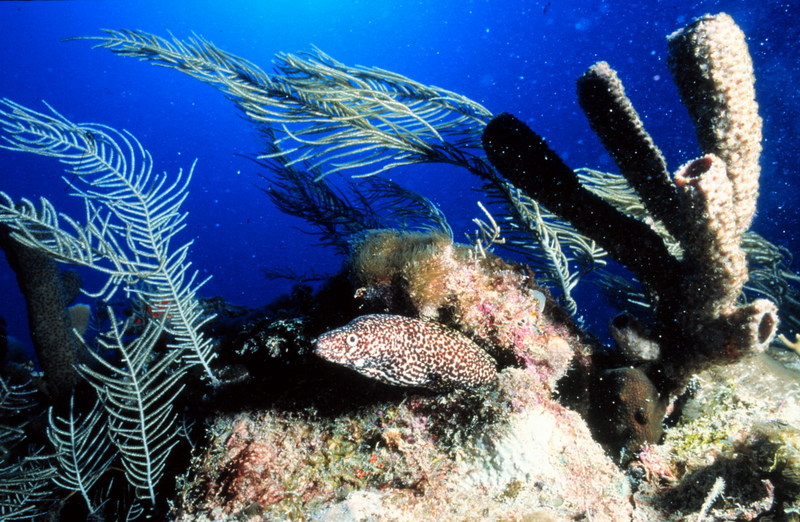|
| Query: Dark moray | Result: 3rd of 32 | |
Spotted Moray Eel (Gymnothorax moringa) <!--점박이곰치-->
| Subject: | Spotted Moray Eel (Gymnothorax moringa)
| | Poster: | Phoby (phoby@notmyphoto.com)
| |

| Resolution: 1374x897
File Size: 452056 Bytes
Date: 2005:09:16 14:15:43
Upload Date: 2005:09:16 14:16:48
|
Spotted moray eel slithers among the reef growth. Gymnothorax moringa.
Image ID: nur00523, National Undersearch Research Program (NURP) Collection
Location: Tropical Atlantic Ocean, Florida Keys.
Photographer: D. Kesling
Credit: OAR/National Undersea Research Program (NURP); University of North Carolina at Wilmington
Photo Source:
The NOAA Photo Library - http://www.photolib.noaa.gov
The National Oceanic & Atmospheric Adminstration (NOAA) - http://www.noaa.gov/
Copyright Information - http://www.photolib.noaa.gov/aboutimages.html
|
Comments |
|---|
| | Guest |
|
The spotted moray, Gymnothorax moringa, is a typical medium-sized moray eel. It has a long snake-like body, white or pale yellow in color with small overlapping dark-brown spots. It can grow to over a metre in length and weigh up to 2.5 kg.
The spotted moray is found in the Western Atlantic Ocean from North Carolina and Bermuda to Brazil, including the Gulf of Mexico and the Caribbean. It is also found around Mid- and Eastern Atlantic islands as far south as St Helena. It prefers shallow water (up to 200 m in depth) with a rocky or grassy bottom.
Spotted morays are solitary animals, and are usually seen in holes, with only the head protruding. They are active during the day, feeding at the sea bottom on crustaceans and other fish. Their bite can be dangerous to humans. There is a minor fishery for them, and they have even been kept as aquarium fish, though they grow too large for this to be practicable in most circumstances. |
^o^
Animal Pictures Archive for smart phones
^o^
|
|
|

